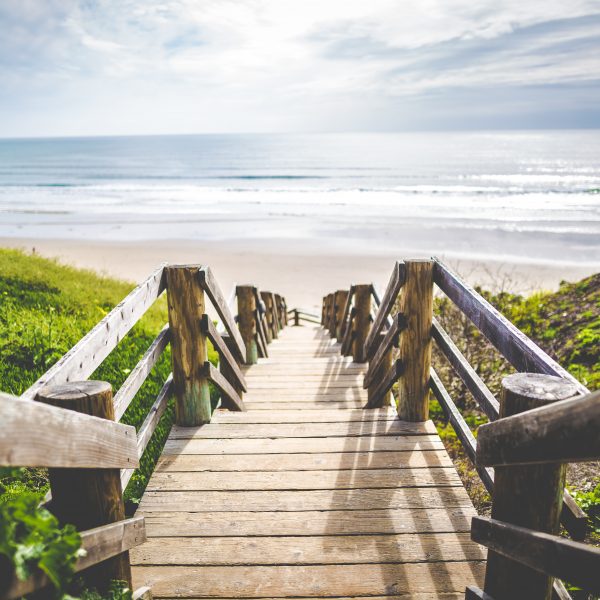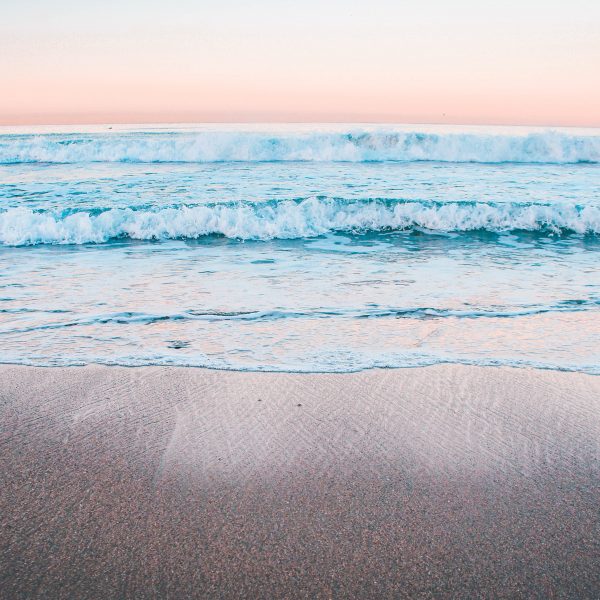Research shows that beach kindergarten helps children to grasp STEM more deeply

Beach kindergarten programs have significant benefits for children’s science, technology, engineering and math (STEM) learning, new research from Deakin University has shown.
Beach kindergarten programs are similar to bush education programs but are hosted in coastal settings, exposing children to coastal and beach based environments to engage in nature based learning experiences and explorations.
Dr Chris Speldewinde of Deakin’s Centre for Research for Educational Impact conducted previous research which found that Australian pre-school aged children who participated in bush kinder programs could have better STEM learning outcomes than those who remained indoors, and wanted to extend this exploration to learn more about the learning potential of coastal or beach-based environments.
Australia, he believes, offers a unique setting to explore these concepts given its warmer climate.
“Swimming and going to the beach in summer are firmly embedded in Australian culture as a popular pastime,” he explained.
“We are lucky to be blessed with some of the most beautiful beaches in the world,” Dr Speldewinde said.
“Bush kindergartens have been growing in popularity in Australia and we noticed some educators moving their programs to the beach. We wanted to find out the value that playing in the sun, sand and surf had for children in exposing them to STEM concepts.”
Beach kindergarten sessions reviewed in the study involved preschoolers aged four to five years of age being allowed to explore and play creatively with unstructured nature-based materials in coastal settings.
Balls and buckets were left at home, with children instead encouraged to interact with seaweed, shells, sand, rocks, wildlife and water.
Dr Speldewinde said youngsters experienced seasonal changes, learned about nature and the environment, food supplies sourced from the sea and the impact of the tides on erosion.
Exploring rock pools proved a great way to start early conversations around physics and biology. Educators helped children grasp engineering fundamentals by experimenting with natural materials to build sandcastles and bridges, while kids also learned about gravity, evaporation and how to categorise shells.
“Our research proves coastal environments can be rich learning contexts for youngsters and I would encourage early childhood educators and parents to dip their toe in the water this summer by turning their next trip to the beach into a learning experience,” Dr Speldewinde said.
“Going to the beach is a great low-cost way for families to spend quality time together. We also found blue spaces can act as a calming and enriching place to learn about the environment for children with behavioural, mental, emotional and social issues.”
Despite the proven learning benefits of bush and beach kindergarten, Dr Speldewinde said there were still only limited agreed sets of curricula in Australian states for early years educators running beach and bush programs.
More guidance in this space was needed, he said, so educators could roll out their programs effectively.
The study findings have been published in the Journal of Outdoor and Environmental Education.
Popular

Quality
Practice
Research
Crayola Creativity Week 2026 launches as research highlights strong link between creativity and confidence
2026-01-06 07:00:35
by Contributed Content

Research
New study finds social dominance preferences emerge in early childhood
2026-01-06 07:30:50
by Fiona Alston

Practice
Quality
Research
The transformative power of affection: How nurturing care shapes early childhood development in Guatemala
2026-01-07 07:00:56
by Fiona Alston














